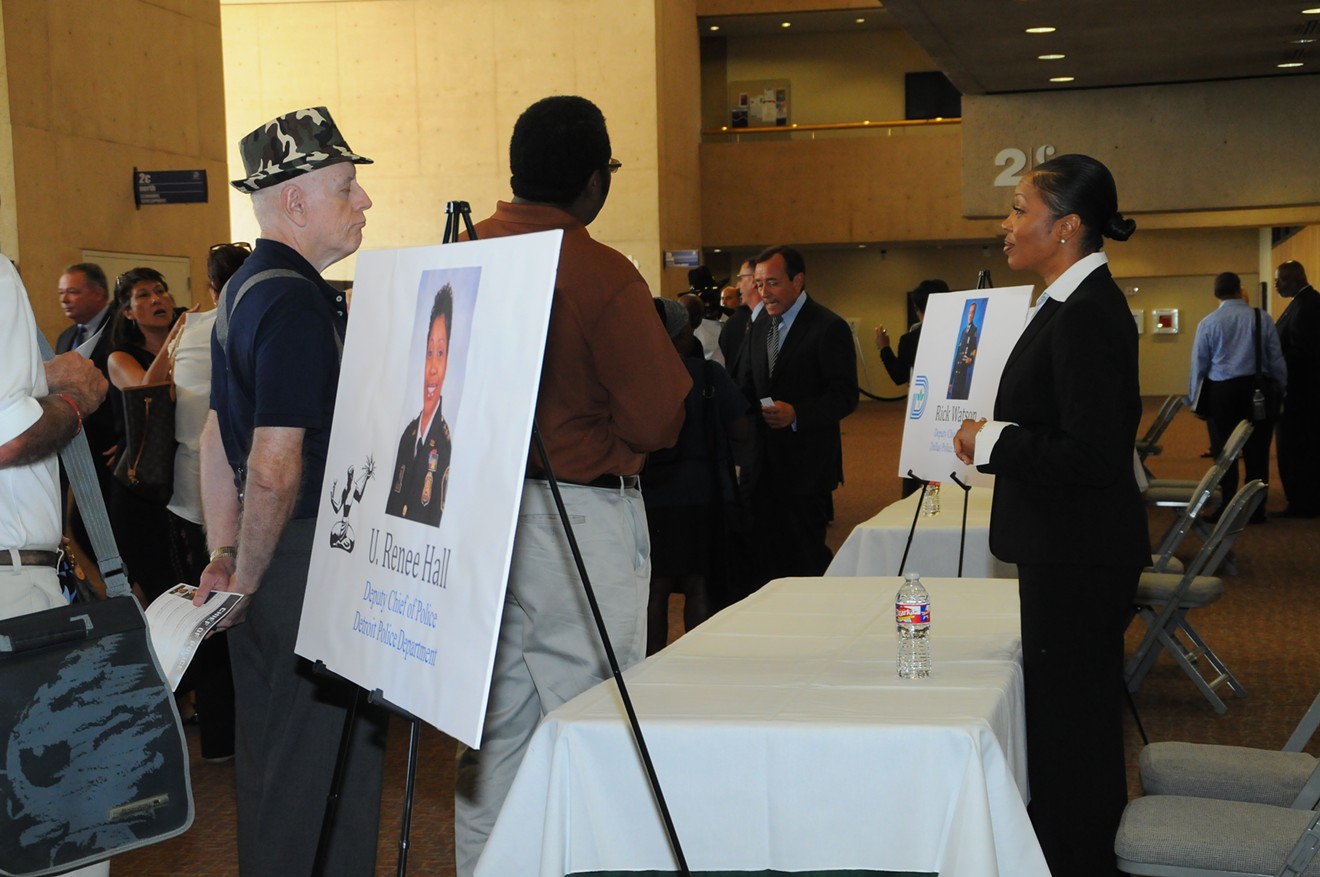This week, it was The Dallas Morning News' turn. As part of its ongoing "Curious Texas" feature, reporter Naheed Rajwani fielded a query from Elizabeth Ehrsam of Plano:
"I keep seeing the new police chief without a uniform," Ehrsam asked. "Is becoming a Dallas police chief that hard?"
In order to put on a DPD uniform, Hall needs to pass the same Texas Commission on Law Enforcement exam that every peace officer in the state is required to pass. Until she does — she has until September to complete the test — Texas law allows her to serve as the department's civilian administrator.
Two weeks ago, KTVT-TV reporter Jack Fink posed the question. This time, it was "a variety of CBS 11 viewers" who asked "why [Hall] isn’t wearing a police uniform four months after she started her job."
Around Thanksgiving, the murmurs over Hall grew so loud that Dallas City Manager T.C. Broadnax had to dismiss claims that Hall was resigning.
"There appears to be rumors that Chief Hall has resigned," Broadnax said in a message to the Dallas City Council. "This is not the case. She is focused on preparing for the TCOLE exam and not taking media calls and outside meetings at this time."
The answer to all the questions isn't something nefarious or damning, according to Patrick Patterson, Eastfield College's criminal justice program coordinator. The TCOLE exam is a difficult test, especially if the person taking it is from federal law enforcement or another state. Hall spent her entire career before moving to Dallas in the Detroit Police Department."You really have to study for this test. You really do. It's not like your average exam." – Patrick Patterson, Eastfield College's criminal justice program coordinator
tweet this
"The issue she may have — we had the same problem with the former sheriff [Lupe Valdez] because she came from the federal side — if you're going to be a federal officer, you're going to learn federal law. The same goes for if you're coming from out of state, like the new chief. ... What's legal in one state may not be legal in another. The terminology in one state might not be the terminology in another," Patterson says.
The 250-question exam focuses on the intricacies of Texas' penal code, traffic law and juvenile law. Seventy is a passing score — Valdez got a 66 her first time taking the test — and those sitting for the test can take it as many as three times. Hall has yet to attempt the test, but most of the dozens of testing centers where she can take it offer the exam at least once a week. There is no required waiting period between attempts.
"When you come from another state, you must learn that state's penal code system," Patterson says. "That might be very foreign to someone coming from the Midwest down to a southwestern state. It's going to take some time for you to learn a state's laws."
When Hall has been asked about the exam, she has stressed that while she's excited to put on the uniform, the day-to-day operations of DPD haven't allowed her to prepare for the exam as quickly as she would've liked. Even for someone with decades of law enforcement experience, like Hall, extensive studying for the exam is a necessity, Patterson says.
"You really have to study for this test. You really do," Patterson says. "It's not like your average exam. It's not set what's going to be on the exam. You may get tested on the penal code, but another person who takes it may get tested on the Texas transportation code; somebody else might get tested on the juvenile law. It's not like a set test that's there. You don't know what it's going to emphasize and in what order. You really have to know everything."












